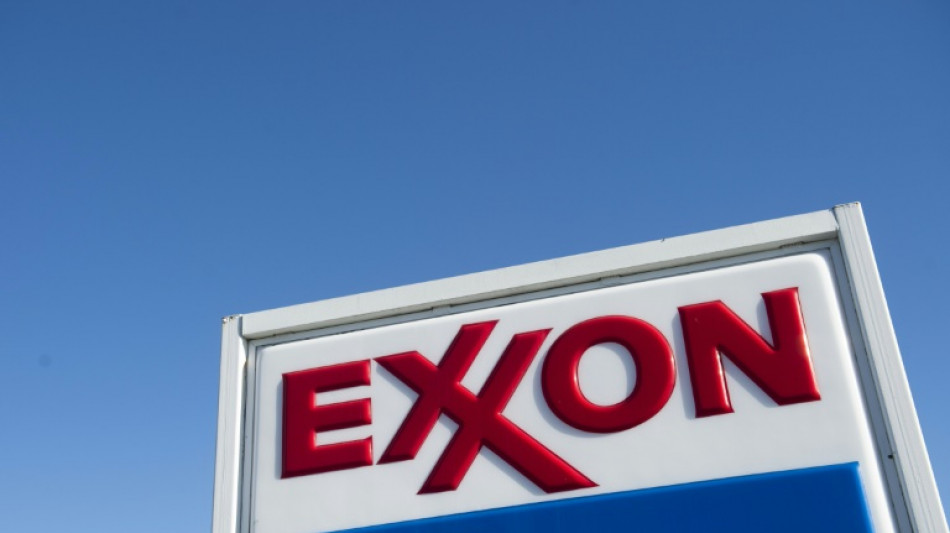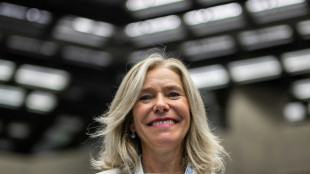

ExxonMobil dismissed own global warming forecast: study
ExxonMobil publicly downplayed climate change even though scientists for the oil giant had accurately predicted global warming from fossil fuels as far back as the late 1970s, according to a study published on Thursday.
"They modelled and predicted global warming with shocking accuracy and skill, only for the company to spend the next couple of decades denying that very climate science," said Geoffrey Supran, a coauthor of the study in the journal Science.
ExxonMobil, formed in a 1999 merger between Exxon and Mobil Oil, has faced accusations for years that it knew about the threat of global warming decades ago.
Inside Climate News and the Los Angeles Times first revealed in 2015 that ExxonMobil was aware for a long time that climate change was real and was the result of human activity.
The company is the target of a number of lawsuits in the United States, several of which are ongoing, an activist campaign tagged "Exxon Knew," and the European Parliament and US Congress have held hearings into the oil behemoth.
"I see this as "Exxon Knew 2.0," Supran said of his research, performed while he was at Harvard University.
He told AFP the study, for the first time, compared the findings of ExxonMobil's own scientists to what other climate researchers knew at the time and to what has subsequently occurred.
"They didn't just vaguely know something about global warming decades ago," said Supran.
"They knew as much as independent, academic and government scientists did, and arguably, they knew what they needed to know to begin to take action and warn the public."
Supran, who now teaches at the University of Miami, said he and his coauthors from Harvard and the Potsdam Institute for Climate Impact Research had analysed private ExxonMobil graphs and tables that had never been scrutinised before.
"We've gone from a qualitative understanding of what they knew to a quantitative statistically precise one," he said. "Our analysis truly seals the deal on what Exxon knew and literally puts a number on it."
The researchers analysed 32 internal documents produced by ExxonMobil scientists between 1977 and 2002 and 72 peer-reviewed scientific publications that they authored or coauthored.
The documents contained 16 global mean temperature projections linked to a rise in atmospheric greenhouse gas concentrations.
"Overall, ExxonMobil's global warming projections closely track subsequent observed temperature increases," the study said.
Ten of the 16 projections are "consistent with historical observations," two forecast more warming than observed and four forecast less.
On average, the ExxonMobil scientists predicted average warming of 0.2 degrees Celsius per decade, equivalent to the current rate.
- 'Excellent scientists' -
Senior ExxonMobil executives meanwhile were dismissing climate warnings.
"Projections are based on completely unproven climate models, or, more often, sheer speculation," ExxonMobil CEO Lee Raymond said in 1999.
Climate models are "not competent," said his successor, Rex Tillerson.
Several of the ExxonMobil scientists involved with coming up with the projections testified before Congress in 2019.
Representative Alexandria Ocasio-Cortez asked one of them, Martin Hoffert, about the uncanny accuracy of his 1982 climate projections.
"We were excellent scientists," Hoffert replied.
The World Meteorological Organization said Thursday that the past eight years were the hottest since records began and the US space agency NASA released similar global temperature findings.
Gavin Schmidt, director of the NASA Goddard Institute for Space Studies, said tackling climate change would involve much more than just "naming and shaming" the oil companies.
"It isn't as if we could just turn around and say, 'ExxonMobil stop producing fossil fuels,' and then we'd solve the problem," Schmidt said. "All those products are being used by people and by industries and by cities and other infrastructure."
Asked about the Science report, Todd Spitler, an ExxonMobil spokesman, said "this issue has come up several times in recent years.
"And, in each case, our answer is the same: those who talk about how 'Exxon Knew' are wrong in their conclusions," he said.
T.McGilberry--NG



